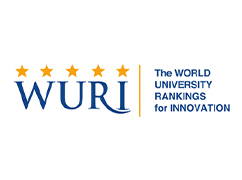Transfer your credits to International Partner Universities
Undergraduates spend their first two years and graduates spend their first year on CHRIST campus before pursuing their third and final year at one of CHRIST’s partner universities. credit transfer program comprises of esteemed universities/institutions in countries such as U.S.A., U.K., France, Germany, Australia and many other countries.
Graduate from top universities
Note: Final degree awarded by the foreign university
There are a range of expenses that you will need to be mindful of when budgeting for your overseas study. These may include:
Note: Some host universities have additional eligibility requirements and/or higher academic average requirements that must be met.
If you fulfil the eligibility criteria, you will also need to:
Applications for the Credit Transfer Program. If you are interested in pursuing your third/final year at one of CHRIST’s partner universities, apply and submit the application form.
Please note that prospective students are advised to fill and submit the online application form solely when you’ve been informed by the Office of International Affairs or department Coordinator.
Generally, the student would be getting a student visa or study permit. The name of the visa may vary in different countries.
If you are going on a student visa, then most of the country’s regulations allow you to work part time. Number of working hours varies from country to country. Generally, you are allowed to work for 20 hours per week during the period of study and 40 hours per week during the holidays. This is subject to the regulations of the host country.
Visa cannot be guaranteed by CHRIST or by the host university. Generally, if applicants have filled the application properly and have furnished the right documents then visa acceptance rates are very high.
Address
Dharmaram College Post, Hosur Road, Bengaluru – 560029, Karnataka, India
Telephone
+91 804012 9100 / 9600
Send us a Fax
40129000
Mail Us At
mail@christuniversity.in







